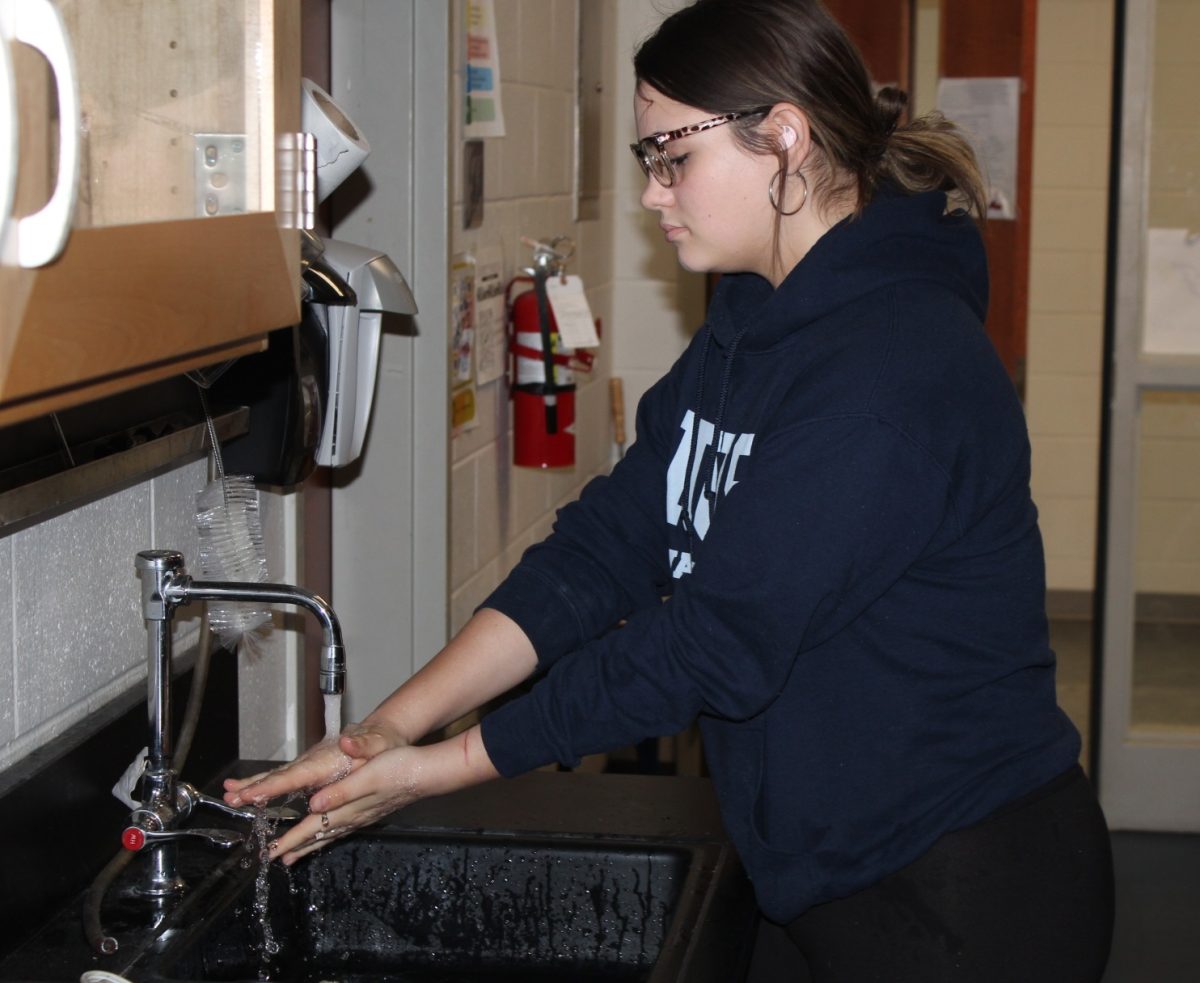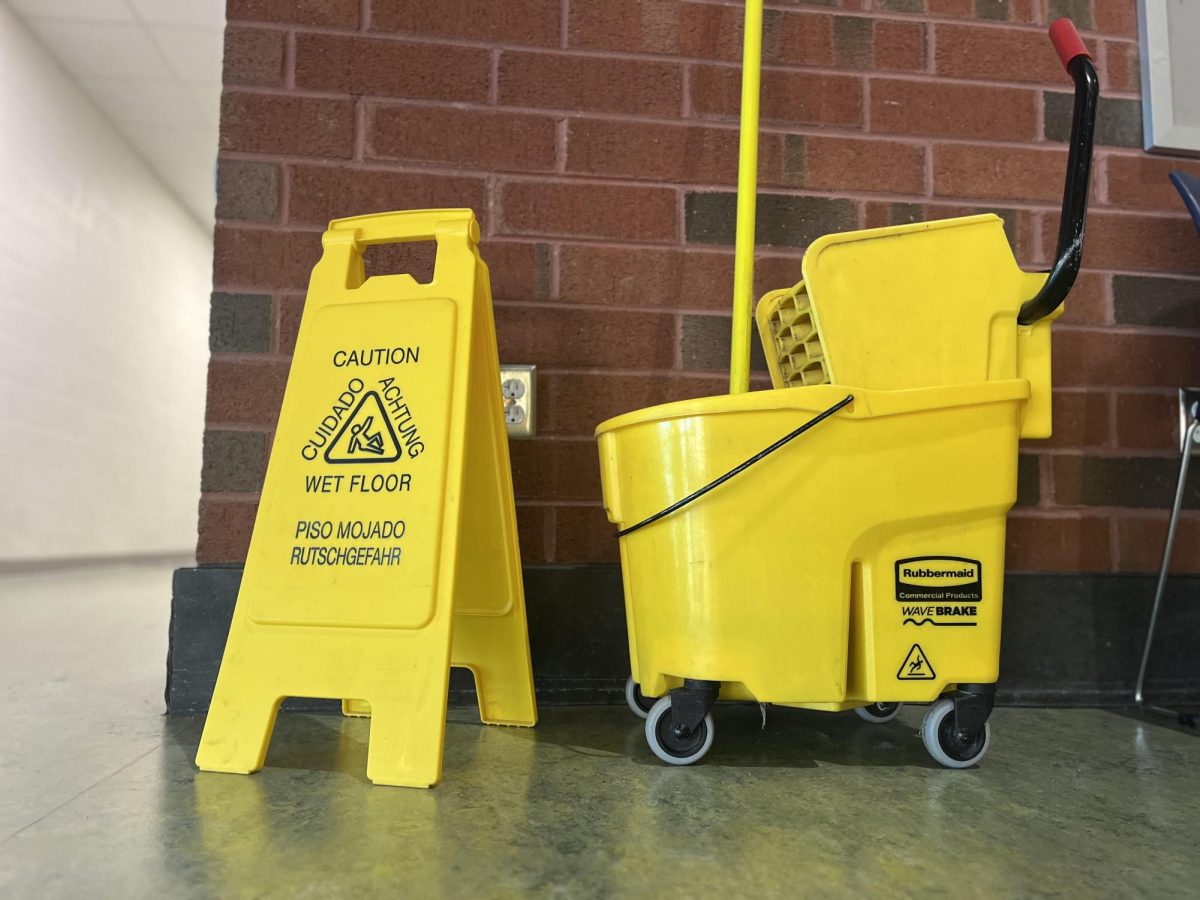Just because flu season is over and graduation is only five weeks away doesn’t mean sickness is at an end. Students are still getting sick and missing school, and those missing days can make it hard for them to catch up on missing work and maintain strong grades. So April can be a good time to brush up on how to keep yourself healthy.
Most illnesses happen when bacteria or viruses enter the body, often through common daily activities. Here are five methods that can help you keep sickness at bay.
Suds Up: Wash Your Hands
Washing your hands is one of the best ways to stay healthy. “I wash my hands after I use the bathroom or I do something outside and I get dirt on my hands,” said junior Jadyn Woolstenhulme.
Most diseases are spread by not washing hands. The best times to wash your hands are before, during, and after preparing food; before and after eating; after using the bathroom; and after blowing your nose, coughing, or sneezing. Use liquid soap and clean water for the most effective wash, and remember that the longer you wash, the more germs you are likely to kill. Some experts recommend washing your hands for the amount of time it takes you to sing the “Happy Birthday” song to yourself.
If soap and water aren’t available, use hand sanitizer with at least 60% alcohol. Most teachers have hand sanitizer in their classrooms for student use. To learn more about proper handwashing, you can visit the CDC Clean Hands Guide and Better Health: How to Wash Hands.
Hands Off: Stop Touching Your Face
According to STAT News, most people touch their face without realizing it, often more than 20 times an hour. About 44% of the time, it involves the eyes, nose, or mouth.
Your hands come into contact with roughly 60,000 different types of germs each day. There are around 1.5 trillion germs on the average person’s face, most of which are harmless, but some aren’t. On common school surfaces, there can be up to 2.7 million bacteria per square inch.
Your eyes, nose, and mouth act as entryways to your lungs and throat. The more you touch your face, the more likely it is that harmful germs will enter your body. Keeping your hands and other contaminated objects away from your face helps reduce your risk of getting sick.
Break the Habit: Nail Biting Can Make You Sick
“I bite my nails a lot, especially when I’m nervous,” said freshman Kiera Rechner.
About 30% of people bite their nails. However, biting your nails can increase your chances of getting sick. The longer the nails, the more space for germs to hide. One 2021 study found that the average fingernail has 32 species of bacteria and 28 species of fungi, many of which can make you sick.
If you do bite your nails, it’s even more important to wash your hands regularly to lower your risk of illness.
Sip Smart: Drink Water
Whether you’re sick or healthy, your body needs water to function. Water helps white blood cells move throughout your body more easily, and those white blood cells are what fight off viruses and bacteria.
How much water you need depends on your age and activity level. Teens ages 14 to 18 should drink 8 to 11 cups of water per day. The more active you are, the more water you need.
Sharing water bottles is an easy way to get sick. It can spread more than just the flu; illnesses like strep throat and more serious infections can be passed through shared drinks.
Snooze to Stay Strong: Sleep Helps You Heal
Getting enough sleep when you’re sick gives your immune system the chance to fight off illness more effectively. Sleep helps your body conserve energy so it can focus on recovery. It’s okay to sleep most of the day during the first few days of being sick. Just remember to stay hydrated and eat nutritious foods when you’re awake.
Not getting enough sleep raises your risk of obesity, diabetes, depression, high blood pressure, stroke, and heart disease. Here are some recommendations for how much sleep people should get at night:
- Ages 13–14 should get 9–10 hours of sleep per night
- Ages 15–17 should get 8–10 hours
- Ages 18–19 should aim for 7–9 hours
To learn more about sleep and illness, you can visit: Healthline – Sleeping When Sick







